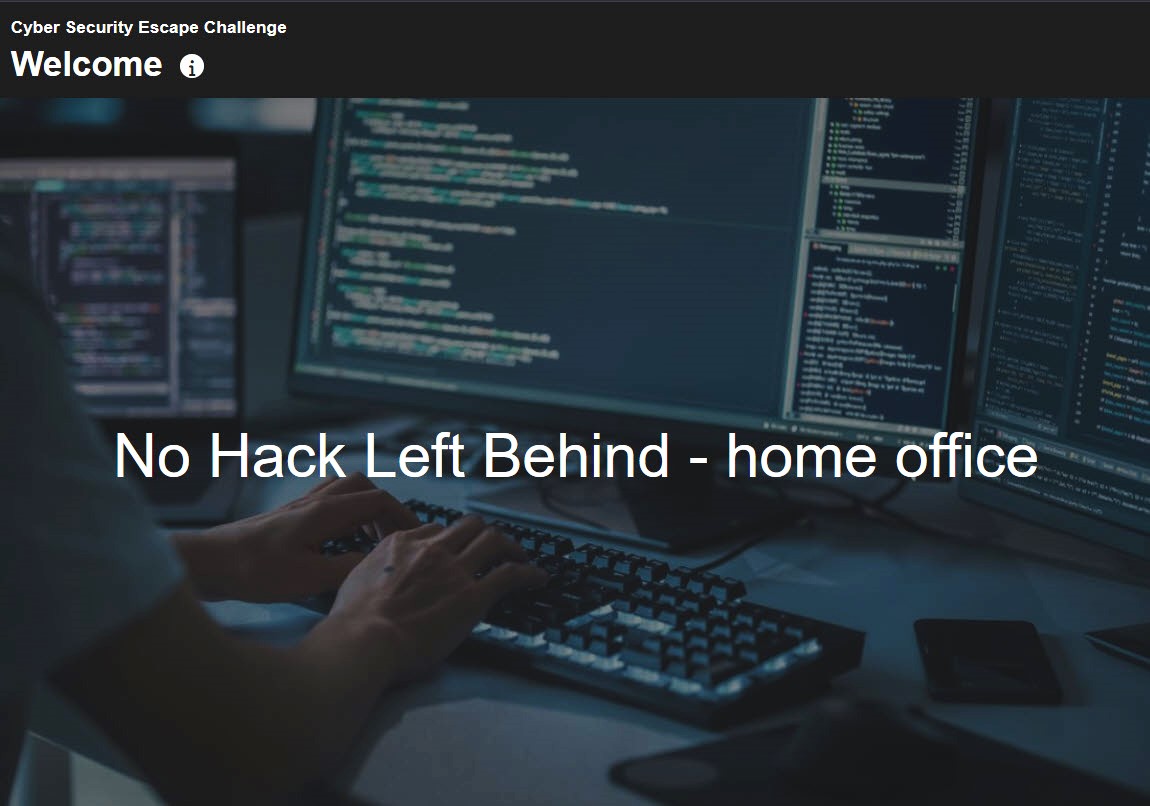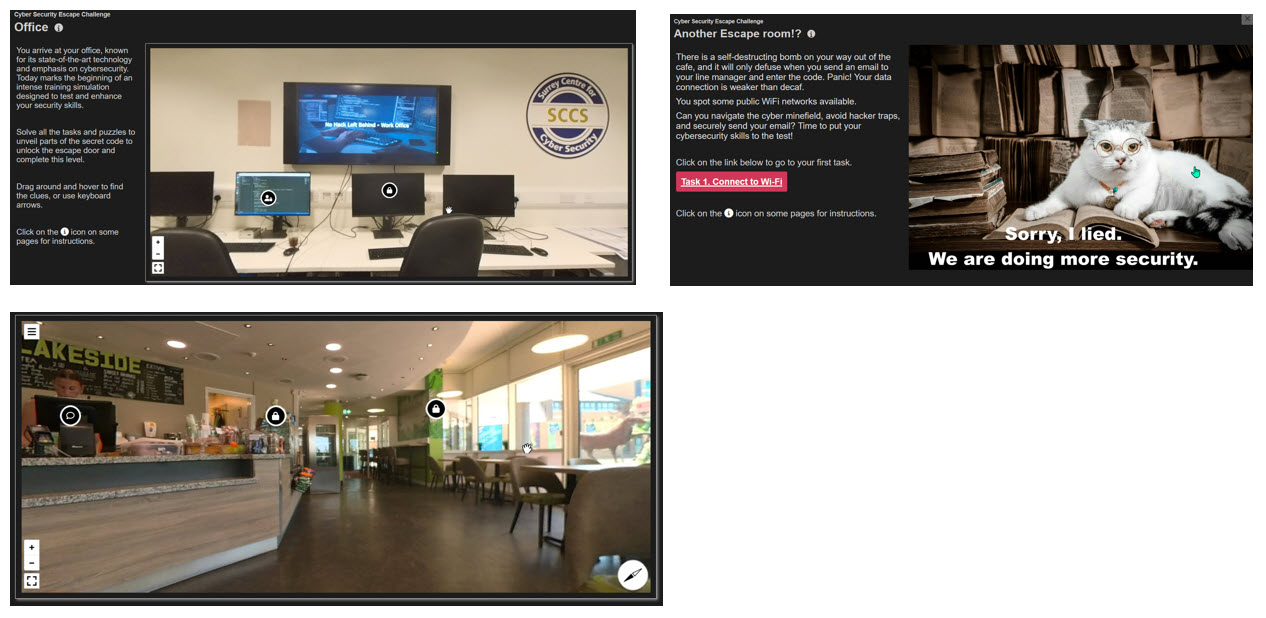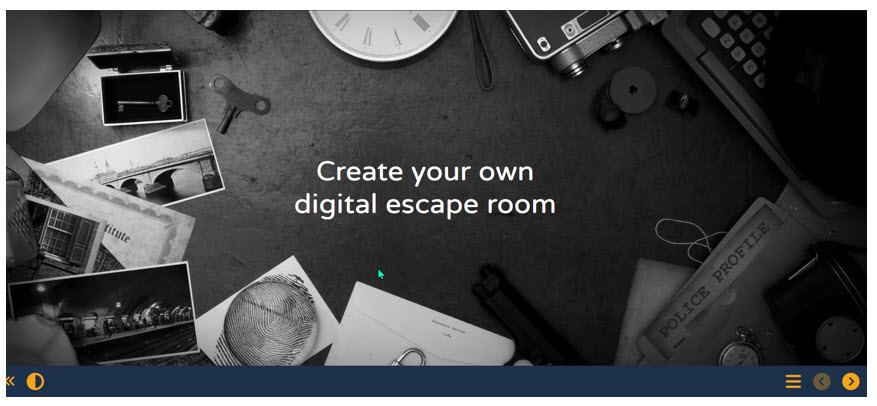
Cyber security agents, A&E medics, data scientists, microbiology madness, laboratories, business boardrooms, labyrinths, mazes and wonderlands! Escape rooms are only limited by imagination.
The third 'Escape Rooms in Education Showcase 2025', hosted by Professors Clare Thomson, Heriott Watt University and Briyana Morrell, University of Indianapolis, USA on 15th/16th May, and was the biggest one yet, with attendees from 15 countries around the world.
Xerte was represented among the presentations and workshops by:
- No Hack Left Behind, a cyber security escape challenge from University of Surrey, Stella Kazamia, Sami Aitsaadi, Anaswara Manoj , Kiran Pun, Helen Ghodbane

- Escape from Usher Building mystery tour, University of Edinburgh, Mary Collacott, Matthew Sanders

- Workshop: The process of creating educational escape rooms using 360 images (partly built with AI) by Inge Donkervoort and Pelle Hoek, DLearning, Netherlands.

What is an 'escape room'
For those who haven't experienced an escape room, you might be asking this question. Professor Scott Nicholson was the keynote at this year's Showcase and, in his seminal paper, 'Peeking Behind the Locked Door: A Survey of Escape Room Facilities' (2015), defines physical escape rooms as:
'live-action, team-based games where players discover clues, solve puzzles, and accomplish tasks in one or more rooms in order to accomplish a specific goal (usually escaping from the room) in a limited amount of time.'
What makes these experiences so captivating isn’t just the puzzles, but also the rich storytelling and imaginative world-building behind them. Educators can be narrative architects, combining curriculum content with engaging plots to transform passive learning into interactive adventures. The result? Students are immersed in lessons they’ll actually remember.
The flexible format of escape rooms, and their potential for developing 21st century skills, such as teamworking, communication, problem-solving, critical thinking, leadership and resilience, have also been recognised. An influential thinker in the games and playful learning domain is Professor Nic Whitton who worked with students, co-creating physical escape rooms. She brings the concept of the 'magic circle' and the value of learning from, and not being afraid to, fail in a safe space (2018).
Digital escape rooms
Since the pandemic, more and more digital escape activities have emerged, and Xerte is the perfect tool for creating digital escape rooms because it is so flexible. It can be used fully online or blended with in-person physical settings, with groups, in breakout rooms online or in physical spaces.
For creating educational digital 'escape' challenges, Xerte has an amazing toolkit, including:
- creating immersive environments with 360 images
- ability to scaffold and add hints, incidental and differentiated learning into the story narrative
- multiple ways to navigate with hotspot images and linking: linear, non-linear and branching scenarios
- several options for 'locking' pages, levels and puzzles, with access passwords/codes, adaptive release.
And more!
Getting Started
If you're new to creating digital escape rooms with Xerte, start small. Focus on a single concept or skill you want to reinforce. You may want to reveal your learning objectives at the end of the escape game, in a group debrief discussion, if possible.
Make sure to test your creation (and test again) with a colleague or small student group to tweak the difficulty and flow.
Finally ...
In a world where attention is a scarce resource, digital escape rooms offer a fresh way to engage students both academically and emotionally. By combining storytelling, game mechanics, and curriculum goals, educators can transform lessons into immersive digital experiences with Xerte — ones students won’t want to escape from.
References
Nicholson, S., 2015. Peeking behind the locked door: A survey of escape room facilities. Available at: https://scottnicholson.com/pubs/erfacwhite.pdf
Whitton, N.J., 2018. Playful learning: Tools, techniques, and tactics. Research in learning technology, 26, pp.1-12.
Available at: https://e-space.mmu.ac.uk/620520/12/Playful%20learning%20tools%20techniques%20and%20tactics.pdf
Escape Room Showcase 2025 links:
Below are some links to resources from the conference and examples of escape rooms from the community.
Sway: https://sway.cloud.microsoft/dBH1eNA9SEIxoRig?ref=Link
Padlet: https://hwuniversity.padlet.org/LTA_HWU/escape-rooms-in-education-showcase-2025-yvus3l5y6kvc74cj
YouTube playlist: Escape Rooms in Education Showcase 2025: Recorded Talks

